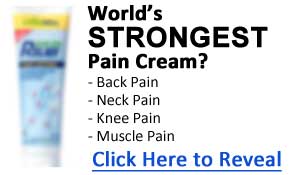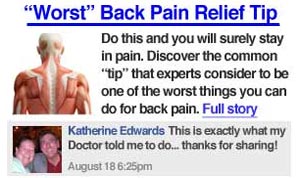By yet unknown mechanisms, DHT causes a change in the follicle signaling the immune system to attack the follicle and your hair starts falling out (If you take a close look, you can actually see a red line of inflammation on the scalp of some people losing their hair). How do we know this? It was discovered that the hair follicles of people losing their hair look very similar under a microscope to people who experience organ rejection after surgery. And, it has been found that the immune system suppressing drug which is used to stop the organ rejection (Cyclosporine) grows hair like crazy because it shuts down the immune response in the body.
A cure you say?
NO! If you take some Cyclosporine and you grow hair it will be because you have no immune system and you will get very sick and possibly die. I shit you not-don't mess with this stuff. Anyway, though DHT is clearly important in the cause of hair loss, it is not the final cause and a new race has been started to address the inflammatory response which ultimately causes you hair to fall out.
Clearly, you have to attack hair loss from both the DHT and inflammatory response, and that's what most of this article is about....sort of. There are also other factors related to hair growth and hair loss such as nutrition, SODases, Nitric Oxide (NO) and others, but DHT and the immune response are the two biggies."
2005 comments:
Interestingly, almost a decade later, our understanding of the cause of MPB has changed little. Androgens (e.g., DHT) and a poorly understood immune response, that has interactions with SODases, NO, and other factors, creates the environment for MPB.
1997 treatment options versus 2005:
In the previous article, I covered copper binding peptides, Nizerol shampoo, Proscar, Minoxidil, and a very promising mystery drug called RU 58841. What follows in this section are comments on each of them from 1997 followed by my thoughts now after almost a decade of experience with them:
Copper binding peptides: back when I wrote the first article a drug called Iamin had just been approved by the FDA for wound healing. Another drug similar to Iamin is Tricomin. Both Iamin and Tricomin were invented and subsequently patented by Dr. Loren Pickart. As I stated in the 1997 article about these compounds,
"These drugs are copper based compounds that have certain peptides added to them. When put on the skin they have profound anti inflammatory properties and increase the rate at which skin heals dramatically (hence Iamin700s approval for wound healing). As I mentioned earlier, chronic inflammation at the site of the hair follicle appears to be a major link in the chain of what makes hair fall out."
2005 thoughts: Unfortunately these products did not turn out to be nearly as effective for MPB as I had hoped. Feedback was lackluster at best. I believe they still have some use in multi ingredient formulas that may add some small additional benefit, but the general advice is they are minimally effective for MPB alone.
Nizoral Shampoo 1997:
"Nizoral is an anti fungal shampoo and the active ingredient is a plant derivative called Ketoconazol and is produced by Janssen Pharmaceuticals. How and why Nizoral works on hair loss in not very well understood. It might work by blocking the DHT at the follicle and/or working by reducing the amount of inflammation at the hair follicle."
2005 comments:
Nizoral turned out to be a big disappointment. It was very popular when I wrote the article, but has dropped out of use by most people. It can now be had without a prescription in 1% strength, but it's a moot issue at this point as Nizoral is ineffective for treating MPB in my opinion. There was one small study (Pierard-Franchimont C, et al. Dermatology. Ketoconazole shampoo: effect of long-term use in androgenic alopecia. 1998;196(4):474-7 )that appeared to find Nizoral about as effective as Minoxidil, so people can use Nizoral if they want I suppose, but feedback and experience says it's of no use.
Proscar 1997:
"...Proscar is a very specific inhibitor of the enzyme (5AR) that converts androgens into DHT. Its official use is for prostate enlargement which is also related to DHT levels (among other things). It was felt originally that Proscar would not be effective for hair loss because it only inhibits the enzyme found in the prostate and not in the hair follicle.
Well again, nothing is cut and dry in the human body, and Proscar has been found to reduce the amount of DHT in circulation which reduces the amount of DHT the follicle has to deal with and thus less hair is lost. Several recent studies have shown Proscar is effective for hair loss and can help regrow some hair on some people, but as I said before, the use of 5AR inhibitors only deals with a part of the problem and are generally not very effective when used as the only treatment."
2005 comments:
At the time I wrote the above, Proscar (finasteride) came in 5mg pills and was approved for benign prostatic hyperplasia (BPH) only. Because studies found 1mg almost as effective as 5mg for lowring DHT, I recommended people split the 5mg tabs into 4, which gave you 1.25mg. Of course the producer of finasteride (Merck) saw the marketing potential for treating MPB, and finasteride was packed in 1mg pills and sold as Propecia.
There is of course no difference between Proscar and Propecia except the dose, so people in the know still buy Proscar and divide it into 4 pieces to save money. I would still recommend Finasteride for MPB, but it is far from the miracle drug for MPB people hoped it would be when it came out. Side effects such as gyno, reductions in libido, and others also appears to be higher in the real world then the studies claimed. Finally, finasteride does appear to work topically (contrary to what Merck claims) which will greatly reduce systemic side effects. However, topical is generally less effective then oral treatment.
Minoxidil 1997:
"...Minoxidil did not turn out to be the hair growth stimulant we all hoped it would be and if it had not recently gone OTC I would not even have included it in this list. However, being minoxidil can now be purchased without a prescription and is about half the price of what it used to cost, I think it is a useful addition to a person's regimen. For hair growth, minoxidil has pretty much been a bust, but for reducing hair loss, I have found it is definitely better than nothing."
2005 comments:
The only thing that has changed since I wrote the above is that Minoxidil comes in a stronger version for men (5% vs. 2%) and can be found as a generic, saving money for the user. I think Minoxidil makes a good carrier for other compounds you may want to use topically, such a Finasteride, etc.
1997 comments on RU 58841:
"RU 58841: This is the mother of all topical anti androgens. RU58841 is made by the Roussel Corporation of France. This stuff shuts down DHT at the hair follicle like nothing else. One of the major problems has been that anti androgens such as Spironolactone and Flutamide taken orally might be good for hair loss, but they cause all sorts of problems related to having low androgens in your body, such as loss of muscle, increased fat, loss of sex drive, gyno, etc.
When these same anti androgens have been used topically (put directly on the scalp) they do not cause the negative systemic side effects, but they did not seem to do much of anything for hair loss or growth either. Therefore, a topically active anti androgen without systemic effects would be highly desirable. RU58841 is a topical anti androgen that shuts down DHT at the follicle without any systemic side effects in the body!"
2005 comments:
If there has ever been a drug that appeared to be close to a cure for MPB with no side effects, this was it. So what happened to it? That too is a bit of a mystery, but the general consensus is that the company never developed it for market for financial reasons after other drugs for MPB faired not nearly as well in the market place as was expected. It's a real shame. After the article came out, I knew several enterprising people with enough money to have batches made up for their personal use, and they all said it was the best thing they had used topically.


